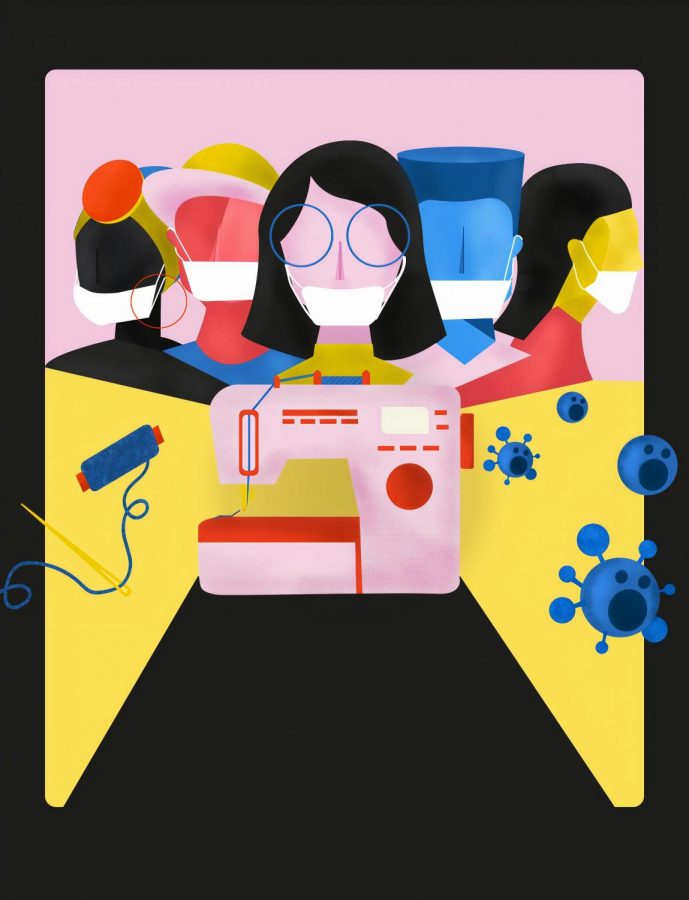Every Tuesday, Susan M. Damiani, a St. John’s class of 1987 alumna and director of University Gift Planning and The McCallen Society hosts professors and alumnus to speak on her virtual power hour about specific industries or events in light of COVID-19. On Sept. 15, Damiani held one such seminar, entitled, “What Does Fashion Look Like Since the Pandemic?”
“Fashion and Lifestyle Shifts Since the Pandemic,” featured panelists Dr. Andrea Licari, professor in the Collins College of Professional Studies (CCPS) and Director of the University’s Fashion Institute with extensive knowledge on the industry, and CCPS professor Nicole Mussenden, who teaches fashion and marketing as well as management courses at SJU.
To begin the conversation, both professors addressed Fashion Week 2020, or the lack thereof. As many of us know, Fashion Week (and Month) looked a lot different this year. With designers either pulling their collections, debuting pre-recorded shows or short virtual presentations to show off their Spring/Summer 2021 designs, there are no celebrities to be seen in the aisles, and very limited models to dress.
“Fashion has seven cycles, which have now been taken down to four,” Licari said. In light of the state of the world’s health and climate, both socially and environmentally. fashion has been oft called upon to change its industry practices. Licari mentioned a number of things that she and Mussenden are teaching their students in fashion courses at SJU.
“We focus on sustainability and cover topics such as how to design fabrics that have a long life span, use less waste, fair trade and the importance of treating people well,” Licari said. “This method of thinking at St. John’s is being used all across the industry as fashion tries to shift to more sustainability.”
In regard to consumer behavior during the pandemic, Mussenden said, “During this time, we are buying products that we need and are lasting. This is sustainability.”
People are not looking for Haute Couture at this time, Licari explained. People are buying more loungewear, sweaters and anything that secures your self-help and comfort. Mussenden chimed in to speak about Gucci launching a sustainable line in light of their most recent partnership with high-end online retailer, The RealReal.
The demand for designer shoes for men is down, Mussenden explained. People are not attending events, going to dinners and outings are scarce. To refer to Licari’s point, people want to be comfortable at home. Slipper sales and loungewear have drastically increased, according to The Business of Fashion. Many retailers such as Macy’s, URBN and others are pushing advertisements for loungewear and pajamas.
“Both Ugg and Croc sales are up,” Mussenden said.
Licari also explained that small businesses and budding designers are taking advantage of this pandemic by selling masks and making PPE for healthcare workers and those that need it. Vogue highlighted local designer Christian Siriano in March, praising him for halting his usual couture production to make masks for hospital workers all over New York City. He recently hosted his show virtually from his backyard, with minimal guests, socially distanced models that wore masks. With people wearing masks, Mussenden posed the fact that lipstick sales are down and eye makeup is up. Skin care is on the rise and face makeup is “not trending,” as we say in the industry.
We all have had to shift and adapt in ways we could have never imagined. This power hour seminar with Licari and Mussenden provided incredible insight into the market, the state of fashion and where the future of the industry is headed.
If you are interested in watching this Power Hour, the recorded show can be found on Youtube.








